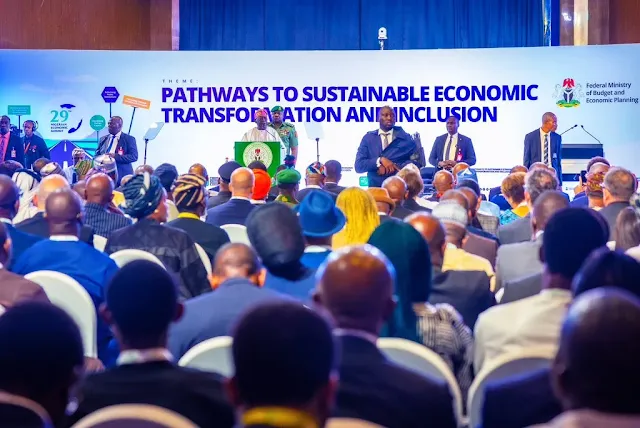Nigeria has set its sights on an ambitious economic future — a vision to grow its economy to $1 trillion by the year 2030. While some may see this as overly optimistic, the indicators and structural efforts currently underway suggest that this target, though challenging, is not beyond reach.
Both the International Monetary Fund and the World Bank have projected modest yet positive GDP growth rates for Nigeria in 2025, ranging between 3.2% and 3.7%. But the journey toward a $1 trillion economy is not just about annual growth percentages; it's about strategic transformation. The country is now laying the groundwork for deep economic diversification, pivoting from its historical reliance on oil to embrace agriculture, manufacturing, services, and the digital economy.
At the center of this transformation is a renewed focus on expanding domestic petroleum production and refining capacity. The Dangote Refinery — widely described as a potential game-changer — is expected to not only reduce Nigeria’s dependency on imported petroleum products but also increase foreign exchange earnings. Aliko Dangote himself remarked that this refinery will significantly strengthen the country’s economic posture in global markets, and many analysts agree.
Yet it is infrastructure — the unglamorous but indispensable pillar of any real economic growth — that may prove to be Nigeria’s true catalyst. Ongoing investments in transport networks, energy grids, and digital connectivity are creating the platforms upon which other sectors can grow. If Nigeria sustains this pace, strengthens policy consistency, and fosters a business-friendly climate, the road to a trillion-dollar economy will become more than a pipe dream.
Experts suggest that the years leading up to 2030 should focus on economic stabilization, improved fiscal discipline, and targeted investments in key sectors. From there, a medium-term strategy from 2030 to 2035 could see the expansion of infrastructure and increased support for innovation, entrepreneurship, and SMEs. This momentum, if well-managed, could propel the economy to $3 trillion by 2035 — and further still to $10 trillion by 2050, positioning Nigeria as one of the global economic heavyweights.
The Dangote Refinery is just one illustration of how private sector leadership, when aligned with public policy priorities, can yield transformative results. But such transformations require more than just one-off success stories. Nigeria must diversify its investment landscape — from agritech to manufacturing to renewable energy — while also building local capacity through partnerships that understand the nuances of Nigeria’s regulatory and market environments.
In the words of a prominent economic analyst, Nigeria’s potential is vast, but its destiny will depend on the choices it makes today. “Nigeria has the potential to become one of the largest economies in the world,” the expert said, “but it requires strategic planning, investment in infrastructure, and diversification of the economy.”
President Bola Ahmed Tinubu has echoed similar optimism, emphasizing the importance of unity, resilience, and strategic focus. He believes Nigeria can, with determination and collaborative effort, rise to meet this generational challenge.
Ultimately, Nigeria’s $1 trillion vision is not just an economic target; it is a symbol of hope, a rallying cry for inclusive growth, and a reminder that with vision, leadership, and smart investment, Africa’s most populous nation can indeed claim its place among the world’s economic giants.



